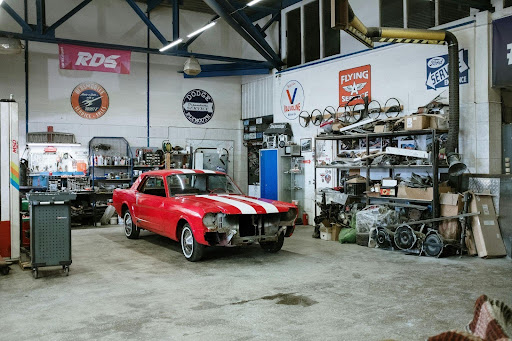Understanding Garagekeepers Insurance and Garagekeepers Liability Insurance for Auto Service and Dealership Businesses
What is Garagekeepers Insurance?
Garagekeepers insurance provides coverage for physical damage to customer vehicles that are in your care, custody, or control. This type of policy helps auto service, repair, or dealership businesses safeguard themselves from unexpected costs related to vehicle damage. While a general liability policy covers damage or injury caused by business operations, garagekeepers insurance specifically addresses damage to customers’ vehicles when they are stored, parked, or handled by your business.
What is Garagekeepers Liability Insurance?
Garagekeepers liability insurance is a specific form of garagekeepers insurance that covers your business when you are legally liable for damage to a customer’s vehicle. For example, if an employee accidentally damages a customer’s car during a repair, garagekeepers liability insurance would cover the repair costs. This type of coverage is designed for situations where your business’s actions or negligence directly result in damage to a customer’s vehicle, and you could be held responsible.
In short:
- Garagekeepers Insurance: Broad coverage for damage to customer vehicles in your possession.
- Garagekeepers Liability Insurance: Covers damage when your business is legally responsible.
Who Needs Garagekeepers Insurance and Garagekeepers Liability Insurance?
Both garagekeepers insurance and garagekeepers liability insurance are recommended for businesses that handle, store, or work on customer vehicles, including:
- Auto repair shops – Mechanics and repair facilities that handle cars for various services.
- Body shops – Collision repair centers and paint shops.
- Car dealerships – Dealerships that service, store, or appraise customer vehicles.
- Detailers and car washes – Businesses where vehicles are left in the care of staff.
- Towing companies – Operators that transport and may store vehicles.
These businesses frequently handle high-value assets, making them vulnerable to potential liabilities that could result in costly claims if a vehicle is damaged.
What Does Garagekeepers Insurance Cover?
Garagekeepers insurance can include protection for various types of damage:
- Collision – Covers damages if a customer’s vehicle collides with another vehicle or object while in your business’s care.
- Comprehensive – Covers non-collision-related damages, such as theft, vandalism, fire, and natural disasters.
- Specified Perils – Coverage for specific risks like fire, theft, and weather damage, which may be chosen as per business needs.
There are two main approaches to garagekeepers insurance:
- Legal Liability Coverage – Only covers damage when your business is legally liable (i.e., your actions or negligence caused the damage).
- Direct Primary Coverage – Offers broader coverage, protecting against all damages to customer vehicles in your care, whether or not your business is directly at fault.
Why Garagekeepers Insurance and Liability Coverage are Important
- Financial Protection – Without garagekeepers insurance or liability coverage, your business could face large out-of-pocket expenses for damaged vehicles. For instance, if a fire breaks out or a car is vandalized on your property, the costs could be significant without coverage.
- Customer Trust and Satisfaction – Customers trust you with valuable assets, and having appropriate coverage ensures they’re protected in case of an accident, reinforcing your business’s reputation.
- Legal Compliance and Contractual Obligations – Some states or contracts require automotive businesses to carry specific insurance, including garagekeepers liability coverage, especially if vehicles are stored on-site for extended periods.
- Peace of Mind for Uncontrollable Events – Garagekeepers insurance provides a safety net for events beyond your control, such as severe weather or theft, allowing you to focus on business operations.
Garagekeepers Liability Insurance vs. General Liability Insurance
It’s essential to understand that general liability insurance for businesses primarily covers damages from third-party injuries or property damage related to operations on your property. However, it typically does not cover damages to customers’ vehicles in your care.
Garagekeepers liability insurance fills this gap by addressing specific risks associated with customer vehicles. If you operate a dealership or repair shop, you might need both types of coverage to fully protect your business.
Choosing the Right Garagekeepers Insurance and Liability Coverage
When selecting the best insurance options, consider the following factors:
- Type of Coverage – Legal liability coverage is generally less expensive but only covers damages when your business is legally liable. Direct primary coverage, while often more costly, protects customer vehicles regardless of fault.
- Coverage Limits – Consider the average value of the vehicles you handle. If you store luxury or high-value vehicles, opt for higher limits to cover potential costs.
- Deductibles – Choose a deductible that balances affordable premiums with manageable out-of-pocket expenses.
- Policy Exclusions – Some garagekeepers policies may exclude specific perils, such as certain natural disasters or intentional damage. Be sure to review exclusions carefully.
For auto service providers and dealerships, garagekeepers insurance and garagekeepers liability insurance are essential components of a comprehensive risk management strategy. By providing coverage for a wide range of potential damages to customer vehicles, these policies safeguard your business’s financial health and reputation.
Selecting the right coverage limits and understanding whether legal liability or direct primary coverage is best for your business can help ensure both your assets and your customers’ vehicles are well-protected. Consult with an insurance professional familiar with the automotive industry to tailor the right mix of coverages for your unique business needs.
What Insurance Coverage Am I Required to Carry in Washington State?
As a contractor operating in Washington State, you are required to carry certain types of insurance to remain compliant with state regulations. The most common insurance policies that contractors should have include:
- General Liability Insurance: This is essential for all contractors. It covers bodily injury, property damage, and legal fees if a client or third party makes a claim against you.
- Workers’ Compensation: If you have employees, Washington State requires you to carry workers’ compensation insurance to cover medical bills and lost wages if a worker is injured on the job.
- Commercial Auto Insurance: If you use vehicles for work purposes, Washington State mandates commercial auto insurance to cover any accidents, property damage, or injuries caused while operating a business vehicle.
- Surety Bonds: Certain contractor classifications, such as general contractors or specialty contractors, must also carry a surety bond as a guarantee of work performance and adherence to licensing regulations.
These are just the basics. Depending on the specific nature of your contracting business, you may need additional coverages such as professional liability insurance or equipment coverage.
Do I Need Workers’ Compensation for My Contractors in Washington State?
Yes, if you employ any workers, full-time or part-time, you are required to carry workers’ compensation insurance in Washington State. However, independent contractors are not considered employees, so they are not typically covered under your workers’ compensation policy. That said, you should still confirm whether the contractors you hire are insured.
If an independent contractor does not carry their own workers’ compensation policy, you could potentially be held liable for injuries they sustain on your job site. It’s always best to request proof of insurance before hiring any independent contractors to protect your business.
Benefits of Business Insurance for Contractors in Washington State
Business insurance isn’t just about meeting state requirements—it’s also a smart way to protect your company and clients. Here are some of the key benefits:
-
Protection from Lawsuits: General liability insurance shields you from lawsuits arising from accidents, injuries, or property damage on your worksite. Even a small incident can lead to costly legal fees, but insurance coverage helps mitigate this risk.
-
Client Confidence: Clients often require proof of insurance before agreeing to a contract. Having comprehensive coverage makes you more appealing to potential clients and ensures that you can secure larger, more lucrative projects.
-
Safeguarding Your Equipment: As a contractor, you rely on specialized tools and equipment. Business insurance can cover the cost of replacing or repairing your tools if they are damaged or stolen.
-
Financial Stability: If a disaster, lawsuit, or accident hits your business, insurance ensures that you’re not paying out-of-pocket for potentially catastrophic expenses.
Questions to Ask an Insurance Company About Business Insurance for Contractors in Washington State
Choosing the right insurance policy is critical, but it’s important to ask the right questions before making a decision. Here are a few key questions to ask your insurance company:
- What types of business insurance are most appropriate for my contracting business?
- Can my policy be customized to cover independent contractors and subcontractors?
- How much general liability coverage should I carry?
- Do I need additional coverage for expensive equipment or tools?
- What are the limits of my coverage, and are there any exclusions I should be aware of?
- How do claims work, and what is the claims process like?
Contact Hood Insurance Agency Today for Business Insurance Services in Washington State
At Hood Insurance Agency, we understand the unique challenges that contractors face. Whether you’re a general contractor, plumber, electrician, or specialty contractor, we are here to provide customized insurance solutions tailored to your specific needs. Our team works closely with you to identify risks, offer comprehensive coverage options, and ensure you stay compliant with Washington State’s insurance requirements.
When you partner with Hood Insurance Agency, you gain peace of mind knowing that your business is protected. Contact us today to learn more about how we can help you secure the right business insurance for contractors in Washington State.

